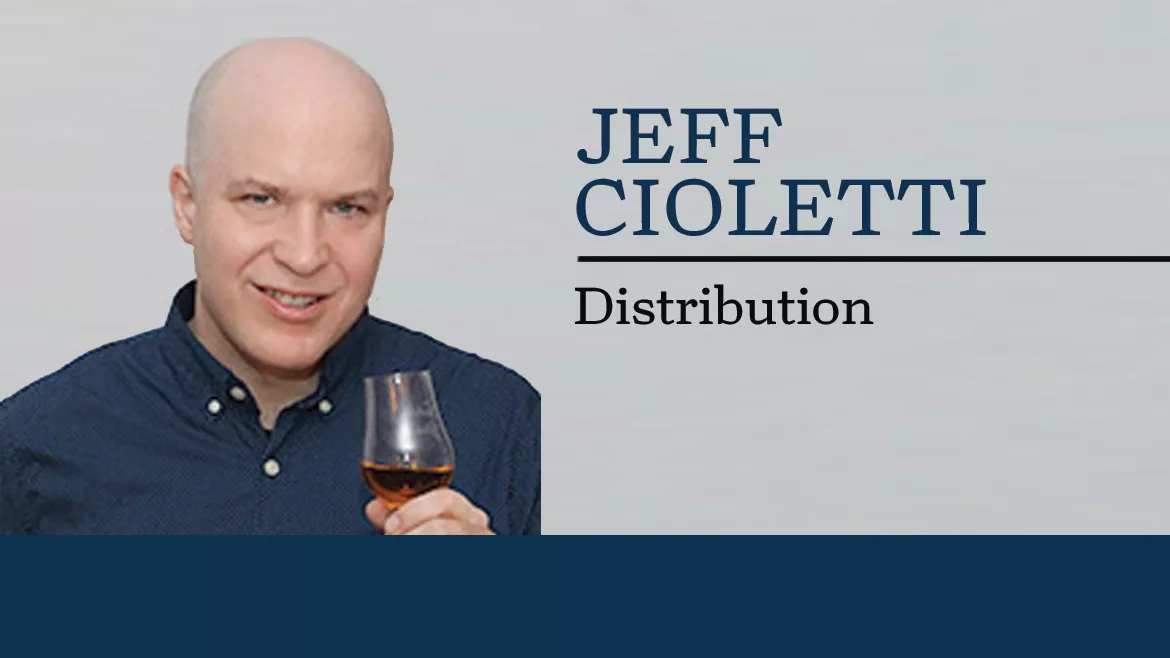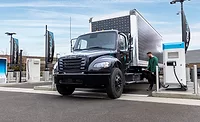Distribution
Hydrogen fuel cells in infancy in beverage delivery but likely to change
Developing hydrogen fuel cell vehicles, in addition to BEV programs

The electric truck conversation tends to focus on battery-electric vehicles (BEVs), especially in the context of local delivery. But there has been some activity in an alternate form of power, especially where heavier duty applications are concerned, that of hydrogen fuel cells.
In contrast with BEVs, fuel cell electric vehicles run on electricity produced in a hydrogen-powered fuel cell. The cell is composed of a series of proton exchange membrane electrodes that mix hydrogen with oxygen to generate electricity. Any of the energy that is not immediately used gets stored in a battery. Some energy also is produced by recapturing brake energy, which also gets stored in the battery.
In short, a battery stores energy, provided by an electric charger, while a fuel cell generates through the use of hydrogen.
Batteries, right now, are the more efficient and less-expensive option, especially for shorter-range local delivery. They also benefit from a more widespread electric fueling infrastructure.
But fuel cells have an advantage in longer-range operations. Hydrogen is considerably more energy dense than batteries, which translates to a lower weight powertrain for fuel-cell driven vehicles. Therefore, it enables those vehicles to carry larger, heavier payloads and drive for longer distances.
The other advantage fuel cells have over batteries is the refueling time. A BEV could take up to several hours to recharge, while a fuel cell vehicle can be refueled and ready to roll in a matter of minutes.
Many of the major original equipment manufacturers (OEMs) have been developing hydrogen fuel cell vehicles, in addition to their more robust BEV programs.
For the past couple of years, Navistar’s International Truck has been collaborating with General Motors and OneH2 on the International RH Series Fuel Cell Electric Vehicle (FCEV). The vehicle will get its energy from two GM Hydrotec fuel cell power cubes, each of which contains 300-plus hydrogen fuel cells, along with thermal and power management systems. The company is on track to release the FCEV with its model year 2024 vehicles.
The International RH Series FCEV joins PACCAR’s fuel cell solution, the Kenworth T680 FCEV. The T680 is equipped with Toyota’s fuel cell electric system. It’s a major component of Kenworth’s “Driving to Zero Emissions” program, which includes its T680, K270E and K370E BEVs.
Meanwhile, Nikola Corp. has unveiled the Nikola Tre FCEV, which promises a maximum range of 500 miles, and refueling time of no more than 20 minutes, all in a zero-emissions package. Additionally, through its Hyla unit, the company is helping to develop hydrogen fueling stations. So far, it’s announced the creation of three stations in California, with more to come in 2024 and 2025.
Across the pond, H2Acclerate is working to do just that — accelerate the deployment of hydrogen FCEV technology. H2Accelerate is a European collaboration among OEMs like Daimler Truck and Volvo, as well as energy companies like Shell, TotalEnergies and others, with the goal of promoting the use of hydrogen as fuel for trucking.
Last month the partnership announced that it had obtained funding from the Clean Hydrogen Partnership to enable deployment of 150 hydrogen trucks and eight heavy-duty refueling stations. H2Accelerate asserted in a recent white paper that hydrogen trucking could be competitive with diesel as early as 2030, given the right policy support.
Looking for a reprint of this article?
From high-res PDFs to custom plaques, order your copy today!





